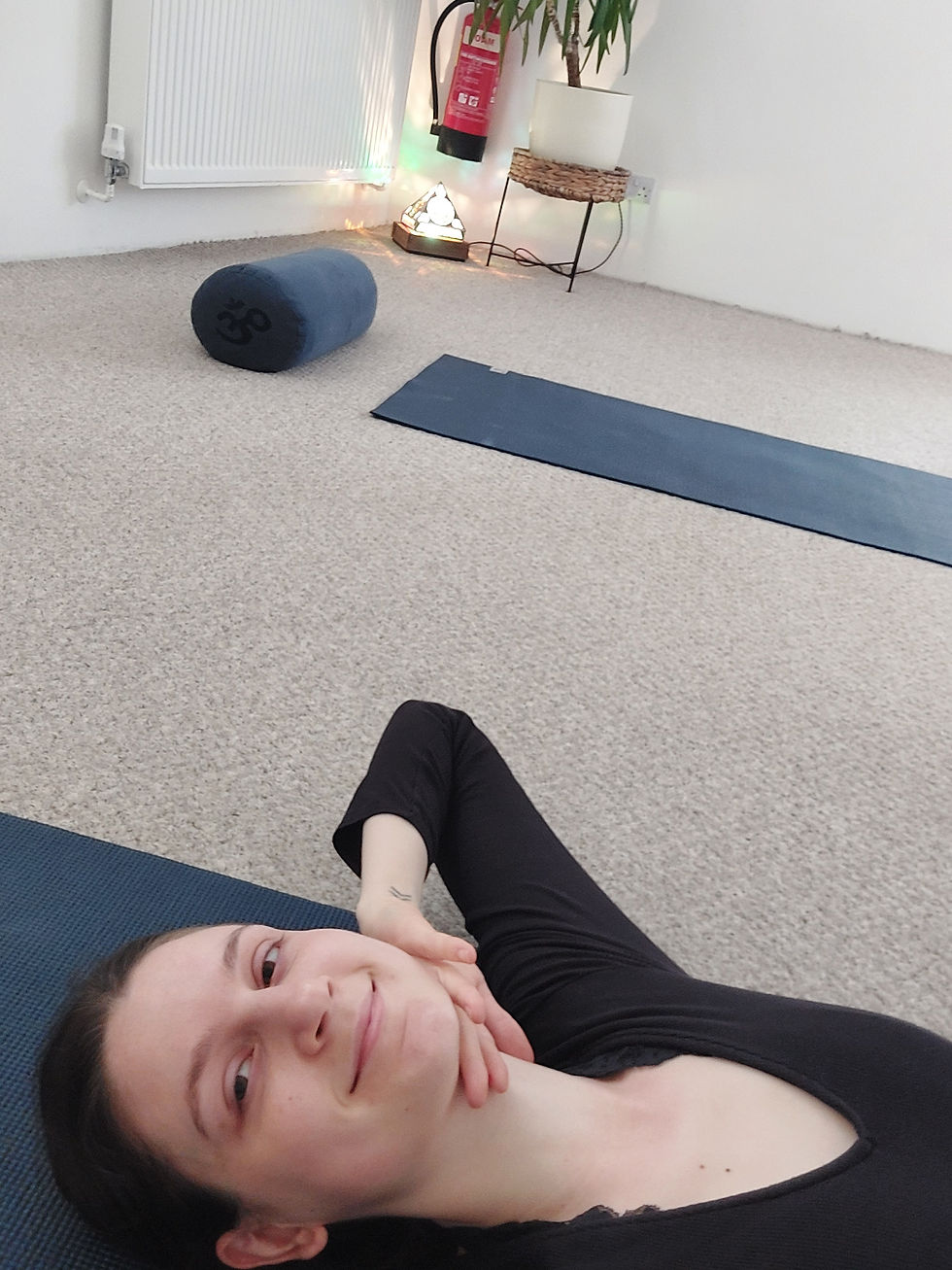Meet Emily, Founder
- queerjoymovement

- Sep 2, 2025
- 3 min read
Updated: Nov 9, 2025
What do you bring to QJM?
I am trained specifically in trauma informed yoga, and am currently completing my 300 hour training in trauma sensitive yoga. I am passionate about creating a movement and embodiment practice that safely and compassionately invites us into connection with our bodies and emotional experiences whilst honouring our authentic needs and experiences. Yoga for me is a safe place to feel the fullness of my human experience, and I hope to share that with other people who are looking for a way back to themselves.

What was your inspiration behind QJM?
QJM was born in 2024 as a result of my own experiences in yoga. I had for years felt that whilst my queer identity was technically welcome in wellness spaces, it was welcome as a silent and undiscussed part of my identity as a teacher and person. I was one of two queer yoga teachers I knew of at the time who were actively sharing and celebrating queer identity in yoga and wellness spaces (Dianna being the other!) and that is a lonely feeling!
It really all came to a moment of decisiveness after the Supreme Court ruling on single-sex spaces. This was, and is, a time of great pain and grief in the queer community, and whilst there was lots of talk about this in some spaces, it went entirely unmentioned and ignored by most wellness spaces in Norwich. This felt super isolating to me, and I really struggled with what that meant in terms of being a yoga teacher, what my responsibility was as one of very few queer teachers in the city, and what it meant for students entering wellness spaces. There is this concept of ‘everyone is welcome’ that doesn’t quite ring true when there is no invitation or discussion of the barriers to feeling welcome. Queer people have to put in a lot of emotional work to feel welcome in places that do not invite their presence actively, and that has been my experience in most wellness spaces. Since starting this collective and putting out feelers, I have found this experience to be far more common than you would want, both for practitioners and for students. I don’t want that emotional work to be a barrier to anyone accessing yoga. Yoga literally means ‘to yoke’, or ‘to unite’, and that feels like it falls flat if we are not putting in the work to make yoga accessible, truly accessible, to everyone.
It felt crazy to me that there was not already a queer wellness collective, and so instead of feeling desperate for it to exist, I decided to create it! It has been slowly taking form over the last 18 months and I am so excited to launch QJM in this new form. Queer people deserve spaces where we are not just passively accepted, but invited and celebrated. We deserve spaces to exist, to learn, to create, to socialise - and also to move and be with our bodies! The space to celebrate our identities, our bodies, our beautiful selves, shouldn’t just exist at Pride, or at protests, or in spaces where there is expectation to drink alcohol. There needs to be space for more than that. I started QJM as an expression of Queer Joy in Movement.
What are you looking forward to most about QJM?
For me it’s not one single thing, it’s a feeling. The best feeling in the world to me is opening my eyes during a class to see everyone doing their own thing - some people in child's pose, some people taking a self hug, others exploring intuitive movement or the weirdest shape I’ve ever seen. That is the feeling I look for in every class I teach, because it means we have created a space where everyone feels able to explore their own deeply individual needs, and not worry about the power structure or social expectations found in most yoga classes. I can’t wait to bring together a queer community of people who are interested in learning more about movement, perhaps dipping their toes into a movement practice, or are perhaps very settled in their own practice and are looking to do that in an inclusive and celebratory space.
Where do you find queer joy?
Shockingly, I find queer joy in queer community! Being in celebratory queer spaces feels like home, it feels safe and expansive. Whether that is with friends, or with my wider queer community, that is queer joy to me. I also find queer joy in my own relationship with myself! In my own personal movement and spiritual practices, in moments alone in nature when I can marvel at the existence of everything - including myself and my own identity, of which queerness is just one part.



Comments